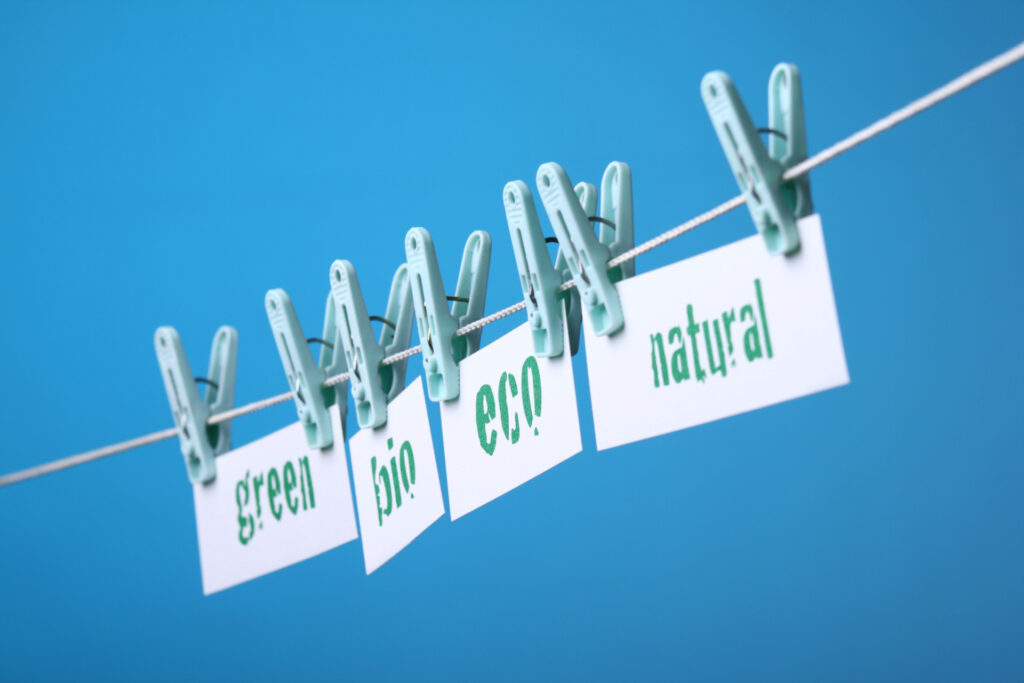In January 2024, members of the European Parliament voted overwhelmingly in favour of adopting a directive to improve product labelling. This is intended to support the forthcoming Green Claims Directive, often dubbed the anti-greenwashing legislation.
If your business trades in the EU, you will need to comply with the changing rules. Businesses with no connection to the EU still need to comply with the UK’s own anti-greenwash rules, which are becoming stronger. Here’s what you need to know.
Why the Green Claims Directive exists
The Green Claims Directive was first proposed in March 2023 as a way to “protect consumers from misleading marketing practices and help them make better purchasing choices”.
The European Parliament categorises it under two subjects: “Consumer information, advertising, labelling” and “Consumers’ economic and legal interests”. But as well as informing and protecting consumers, it is also a pro-environment piece of legislation. Getting rid of greenwash makes market signals more effective and creates a financial incentive for businesses to do better on the environment.
The EU is drawing on research that found over half of environmental claims are unverifiable. The same study found that most stakeholders agree greenwashing is a problem – with the noticeable exception of industry representatives.
Legislative context
The law that gained such strong support from the European Parliament in January is directive 2022/0092, titled Empowering consumers for the green transition. It is separate from the Green Claims Directive but is designed to fit with and support it.
Directive 2022/0092 aims to “contribute to more sustainable consumption patterns”. One of the ways it will do this is by tackling misleading claims that prevent customers from making honestly informed choices. It also aims to encourage the sale of more durable and repairable goods by requiring higher seller transparency. For example, if a printer won’t let you use non-branded cartridges or a mobile phone won’t let you use a charger from a different phone, the sellers will have to make that clear before you buy.
The Green Claims Directive (2023/0085) is intended as an amendment to an older directive, 2005/29, which concerns unfair business-to-consumer commercial practices in the internal market.
Where we are now
At the time of writing (February 2024), directive 2022/0092 still needs to receive final approval from the European Council. This is expected to happen fairly quickly.
Meanwhile, the Green Claims Directive itself is still making it through the European Parliament. There is a plenary sitting date currently scheduled for 11 March 2024.
What to expect
It is clear from the proposed wording of the Green Claims Directive and the EU’s communication on this topic that we can expect a crackdown on terms such as “carbon neutral” and “eco-friendly”. Any business making a claim about its environmental credentials will need to back this up with hard evidence. Our blogpost on the original proposal gives more detail.
Timescales
We don’t have a date for when the Green Claims Directive will come into force, but we do know that member states will need time to transpose it into their national legislation. Deloitte estimates that the requirements will actually apply from 2026, but this is subject to change.
UK anti-greenwash measures
The UK will not be subject to the Green Claims Directive, but we do have our own anti-greenwash rules to be aware of.
- The Competition & Markets Authority (CMA) offers guidance for businesses making environmental claims, including the “Green Claims Code”.
- The UK Code of Non-broadcast Advertising and Direct & Promotional Marketing (known as the CAP code) has a specific section on environment-related marketing.
- The Financial Conduct Authority (FCA) is bringing in measures that affect FCA-authorised firms. See our 2024 compliance forecast for more details.
The direction of travel for regulations in both the UK and EU is towards greater transparency, so expect the situation to keep evolving. The Energy Advice Hub will bring you the latest updates.

